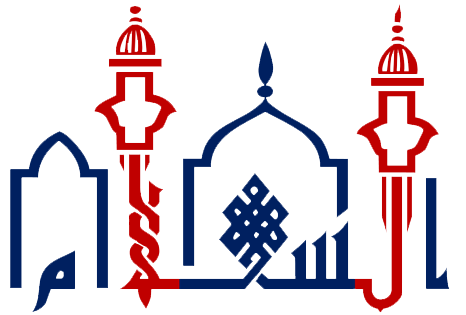When Allah makes something prohibited He does so with our well-being in mind and not because He wants to inflict on us undue hardship. Allah has neither permitted anything except what is pure nor has He prohibited anything except what is impure. That which Allah has prohibited is both unnecessary and dispensable. In addition, when something is prohibited Allah provides alternatives which are better and which give greater ease and comfort to human beings.
This point has been explained by the Islamic scholar Ibn al-Qayyim:
Allah has prohibited seeking omens by drawing lots but has provided the alternative of istikhara (Islam teaches that if the Muslim faces a problem he should consult with others and seek guidance fAllah. The meaning ofistikhara is to ask guidance from Allah in making a choice between two conflicting decisions. For this there is a salat and a du’a (supplication) which is a supplication for seeking Allah’s guidance.
He has prohibited usury but has encouraged profitable trade. He has prohibited gambling but has permitted betting on forms of competition which are useful for their (the Muslims) religious striving, such as horse or camel racing and competing in marksmanship.
He has prohibited (to men) the wearing of silk but has given them the choice of other materials such as wool, linen, and cotton.
He has prohibited adultery and fornication but has encouraged lawful marriage. He has prohibited intoxicating drinks in order that they may enjoy other delicious drinks which are wholesome for the body and mind. And He has prohibited unclean food but provides alternative wholesome food.
(Rawdah al-Muhibbeen, p. 10, and A’alam al-Muwaqq’in, vol. 2, p.111.)
Thus we can say with confidence that when Allah prohibits a few things, there is a much wider range of more wholesome alternatives which are good for us. With this in mind we should seek to avoid that which inflicts harm on us and be satisfied with what Allah has made permissible.
Which brings us to the topic of drugs. The Arabic word khamr signifies any alcoholic drink which causes intoxication. The prohbition of consuming any alcoholic drink is clearly stated in the Quran and there is no controversy regarding this opinion. The Quran clearly says, “O you who believe! Truly, intoxicants and gambling and divination by arrows are an abomination of Satan’s doing: avoid it in order that you may be successful. Assuredly Satan desires to sow enmity and hatred among you with intoxicants and gambling, and to hinder you from the remembrance of Allah and from salat. Will you not then desist?” (5:93-94)
As you can see from the wording of these verses the reason for this prohbibtion is due to the destructive nature of alcoholic drink. But many people make the mistaken assumption that drugs are not specifically mentioned in the Quran and since Allah is silent on this issue therefore drugs are permissible.
But one may ask the question, why was alcoholic drink prohibited in the first place and what affect does it have on one’s mind?
The answer to this question is found in the above Quranic verses. Under the influence of alcoholic drink people lose the ability to think correctly and commit all kinds of actions for which they are later sorry.
In addition, the Prophet has stated that “Every intoxicant is khamr, and every khamr is haram.” (Reported by Muslim) Which means that anything which intoxicates the mind is forbidden and since drugs fall into that category they are also forbidden. Umar bin Khattab, the second Khalifah, declared from the pulpit of the Prophet, “Khamr is that which befogs the mind.” (Reported by al-Bukhari and Muslim) There should be no ambiguity or doubts regarding this question. Any substance which has the effect of befogging or clouding the mind, impairing its faculties of thought, perception, and discernment is prohibited in Islam.
But if we were to stop there it would be ending on a negative note. As stated at the beginning, when Allah prohibits something He does so for our own good and provides us something even better as a replacement. Allah says in the Quran, “And do not kill yourselves; indeed, Allah is ever Merciful to you” (4:29), and “And do not be cast into ruin by your own hands….” (2:195). Furthermore, the Prophet said, “Do not harm yourself or others” (Reported by Ahmad and Ibn Majah), which is what one does when they consume illicit drugs.
But can you see, dear Muslim, that in all of these statements of prohibition Allah only wants what us best for us and to protect us from harm? The Quran states that, “Allah wants ease for you and not hardship” (Al-Baqarah 2:185) so it is an act of mercy when He warns us to stay away from that which will do us harm.
May Allah help us to be satisfied with what He has made permissible and avoid that which He has forbidden.
Part 2 of this article will discuss “Temptation and Drugs.”
By: Yahya Abdul Rahman

